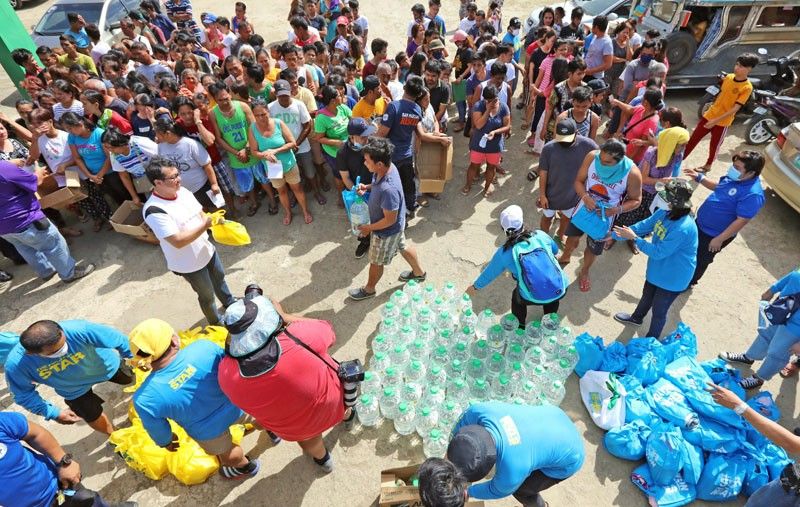Do good, Feel better

Everybody wants to start a new year invigorated and recharged. The current situation in Taal gives us the opportunity not only to help the displaced victims but also enrich ourselves emotionally, mentally and physically in the process. How? Through volunteerism.
In a Harvard Health blog, it was discussed how volunteer work provides advantages for the heart aside from the emotional rewards.
“There’s a growing body of research showing that volunteering is associated with better physical and mental health outcomes,” says Eric S. Kim, a research fellow at the Harvard T.H. Chan School of Public Health.
In a study he co-authored, they found that volunteers were more likely to avail of preventive health. In the study, those who volunteered were 47 percent more likely to get cholesterol checks and 30 percent more likely to get flu shots than those who didn’t volunteer.
In the earlier phase of the same study, they found that people who volunteer at least 200 hours per year (roughly half a day per week) were less likely to develop high blood pressure over a four-year period than non-volunteers. Volunteers also had more physical activity and better psychological well-being.
Across multiple cities in the United States since 1995, Experience Corps matches adults ages 50 or older with public school students who struggle with reading. Compared with a control group, Experience Corps volunteers walked more steps, were less depressed, didn’t struggle in everyday tasks, and have better thinking skills.
Volunteering and having an advocacy may give people a greater sense of purpose in life.
“There are three elements to a sense of purpose: a sense of meaning, a sense of direction, and a goal to strive for,” Kim explained. “In recent years, research on health and longevity has expanded to focus more on these types of positive emotions.”
“We know that stress, depression, and anger all have negative effects on the body, especially with regard to the risk of cardiovascular disease,” said Kim. “The opposite emotions and mindsets — satisfaction and optimism — are closely linked to (but not necessarily synonymous with) a sense of purpose. Yet a sense of purpose is associated with better heart health above and beyond the effects of optimism and a positive outlook.”
In 2018, Dr. Barbara Edwards also wrote about “How Volunteering Can Help Your Mental & Physical Health” in the blog section of the psychcentral.com website.
“Many recent studies that have been done on volunteer work show how it’s connected to better health. Physical effects on the body, such as lowered blood pressure can be measured and impacted through helping others.Though some of us are introverts, humans need social connection in order to survive and thrive. Helping others not only makes you feel good about yourself, but your actions have lasting effects on those you serve, which can be just as rewarding as knowing you’re contributing to your own self-improvement,” she explained.
According to Dr. Edwards volunteering can improve self-confidence, lower stress, help with depression, and promote longevity.
“Feeling needed and appreciated for your work can boost your confidence. Volunteering on a regular basis can give you a sense of purpose, fulfillment and accomplishment,” she added.
“Stress and high blood pressure are inextricably related, so lowering your stress levels can also aid in lowering your blood pressure. A study from Carnegie Mellon University showed that those over the age of 50 who volunteered regularly on average had lower blood pressure than those who did not,” she said.
“Volunteering with others who all work toward the same goal increases social interaction, thus diminishing the lonely feeling that so many face from living alone — especially in old age. Surrounding yourself with people who share the same interests can help you build a support system, and having a strong support system has been shown to decrease depression, despite vulnerability as a result of genetic and environmental factors.”
She added: “A study from 2012 shows the life expectancy of volunteers to be longer than those who don’t volunteer. It is believed that the main reason those who volunteer live longer than those who don’t is because of lowered feelings of loneliness, as well as lowered levels of stress, as mentioned before. However, the results of this study apply only to those who volunteer for genuine selfless reasons, rather than those who volunteer for their own self-interests, like résumé building.’’
* * *
Post me a note at mylene@goldsgym.com.ph or mylenedayrit@gmail.com.



















